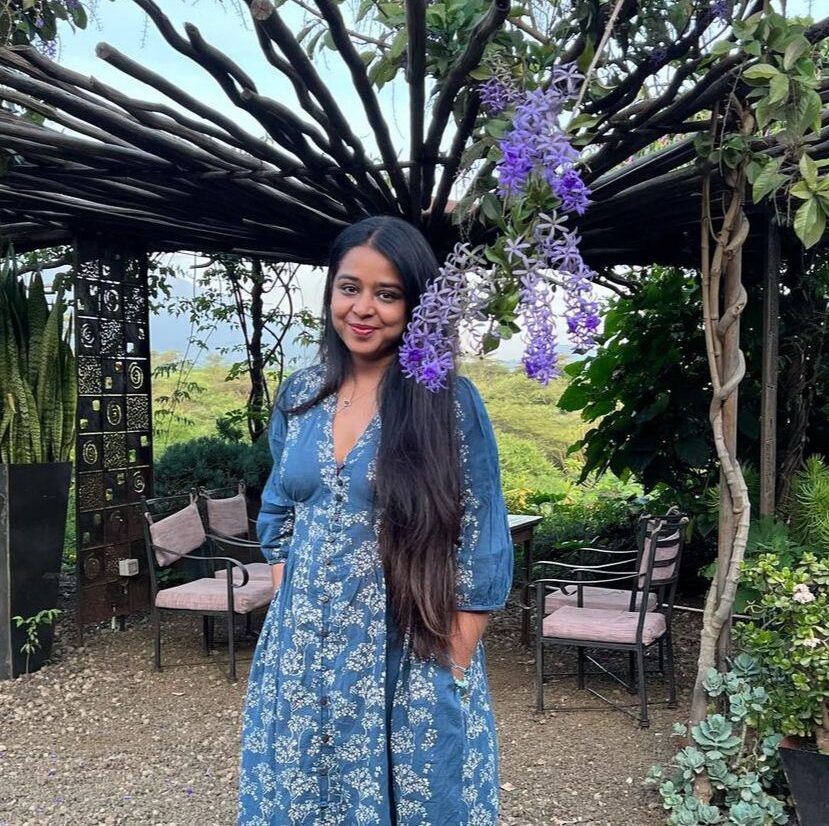While you’re going to spend your whole day hunkered down at home (sans a walk outside or a trip to the grocery store), keeping your skincare routine constant is still super important. It can be easy to get lazy about layering products on, and while skipping a step or two might be okay, leaving sunscreen out can be very harmful. According to studies, sun rays just from the window can affect your skin in just 15 minutes.
According to Dr Pankaj Chaturvedi, consultant dermatologist, MedLinks and cosmetic chemist Aneesh Sheth of skincare brand Dr Sheth’s, your morning skincare routine of sunscreen application is necessary even when you are indoors. “There are two types of ultra-violet (UV) rays—UVA and UVB. Both are equally damaging for the skin. Staying indoors doesn’t mean they can’t enter, as they can penetrate through your window glass. Most window filters block the latter, but UVA can easily affect your skin, causing sun damage and increasing your risk of skin cancer,” says Dr Chaturvedi.
How often should you be reapplying sunscreen?
When you’re outside, reapplying every 2-3 hours is ideal. But since you’ll be inside, applying every 5 to 6 hours is best, says dermatologist and cutaneous surgeon, Dr Satish Bhatia. “It will be better to switch to a lower SPF in the gel form or a light lotion format to make it comfortable yet effective. When you step out, we recommend that a sunscreen should be at least 50 SPF and above. But now since all of us are mostly contained indoors 30 SPF is more than enough,” says Dr Bhatia.
How does blue light affect the skin?
Our limited time outdoors has resulted in extended hours on the on our electronic devices which emit blue light, also called HEV (High Energy Visible) light. “They penetrate more deeply than UV rays,” adds Dr Chaturvedi. “Blue light or visible light reaches the deepest layer of the dermis. To compare, UVB reaches only the epidermis and UVA a little deeper into the mid dermis. While the intensity of damage may not be as severe as UVA or UVB, constant exposure also affects the skin,” he says. This is just that much more important in Indian skin, which is already prone to pigmentation issues and uneven skin tone. “Blue light can darken pigmentation, cause tanning and increase signs of ageing,” says Sheth.
What kind of sunscreen should you look for?
“You can pick between chemical and physical sunscreen. Physical ones (that contain zinc oxide, titanium dioxide and some iron oxides) sit on top of your skin and block the sun’s rays. The effect is similar to wearing a hat and covering your face from the sun. Chemical sunscreen absorbs the sun rays like a sponge and breaks it down into a less harmful version,” says Prashanthy Gurugubelli, founder of skincare brand Daughter Earth.
Do your normal sunscreens work? Most doctors say yes. However, sunscreens made for blue light also exist on the market. “There are blue light actives—mainly carotenoid rich botanicals—that can absorb blue light, and even nullify its effect with their antioxidants. For both blue light, and sun protection at large, it is important to not only block the sun rays, but also add actives that help with inflammation and the oxidative degradation of lipids of the skin (known as lipid peroxidisation),” says Gurugubelli. Plus, sticking with a routine is key. If you’re used to wearing it everyday, taking it out of your routine for too long can let you forget, which can be doubly harmful once the lockdown does end.
The article was first published in Vogue





